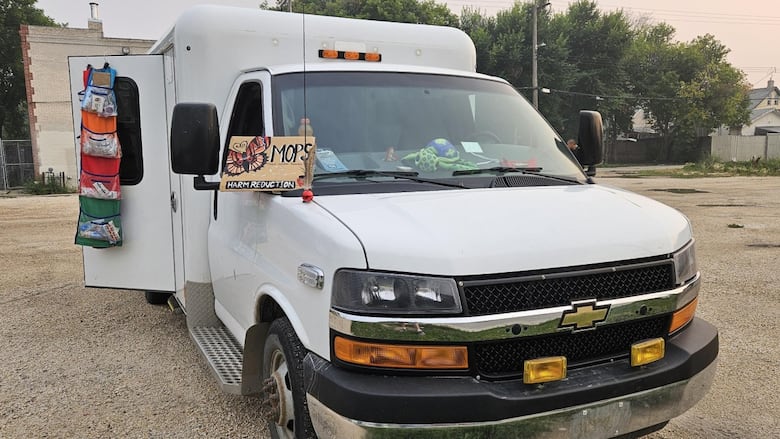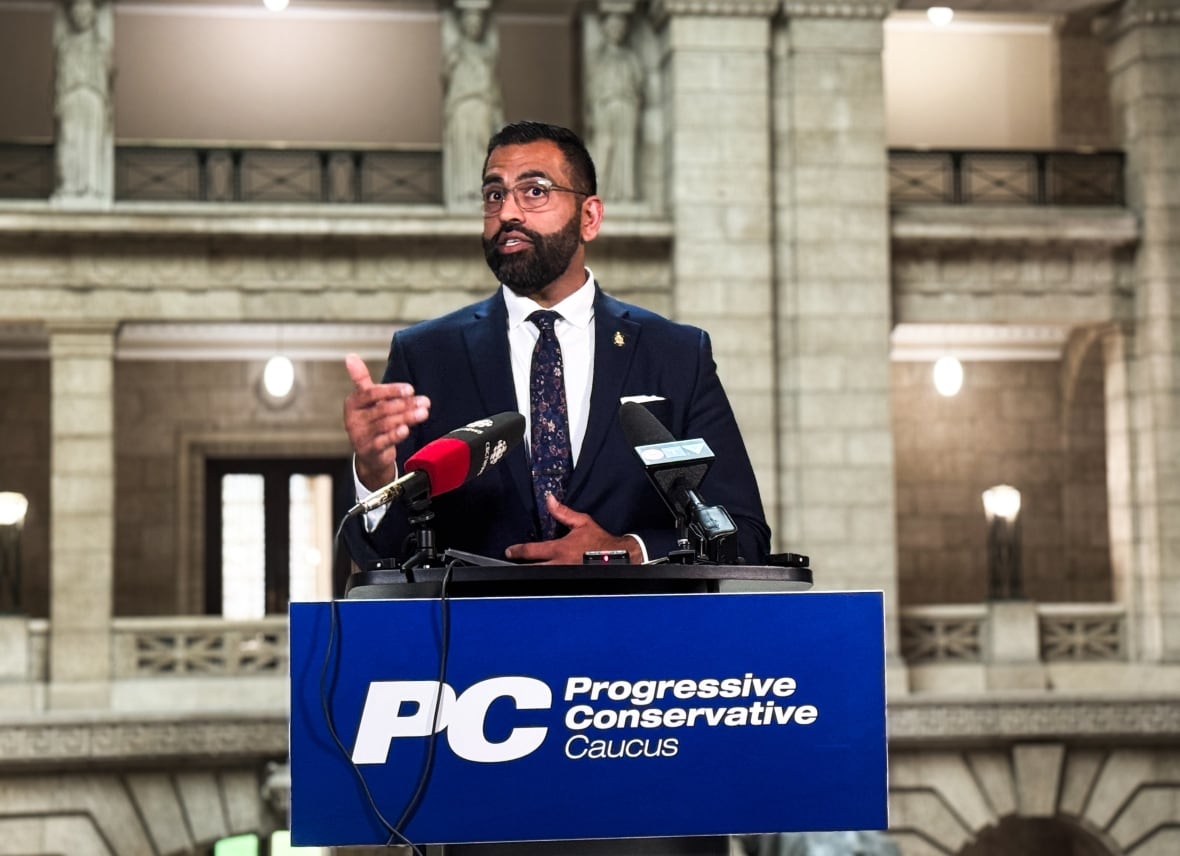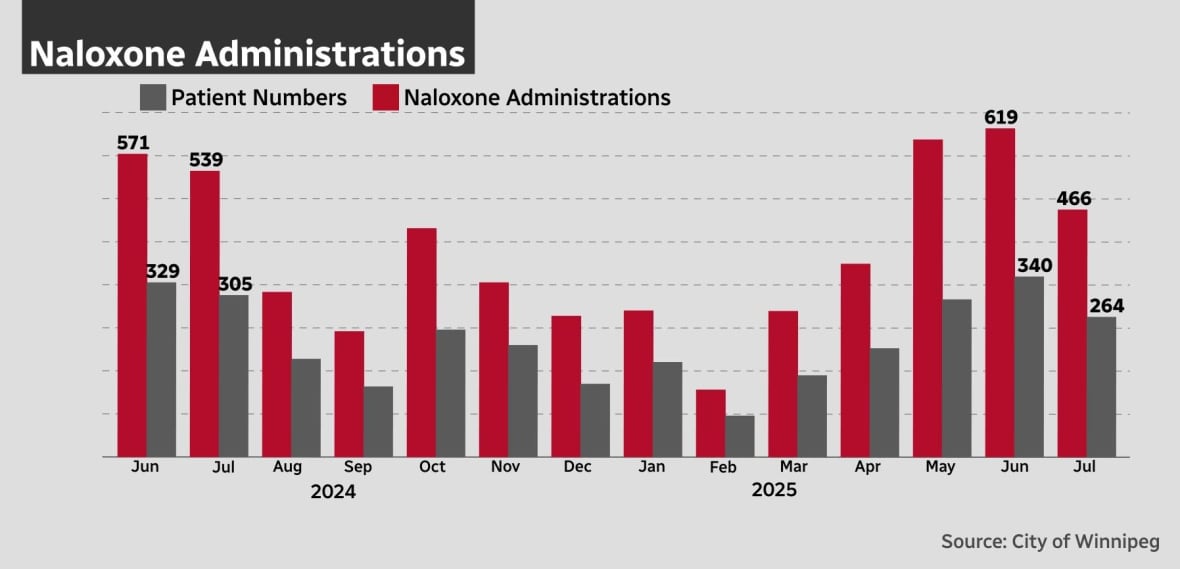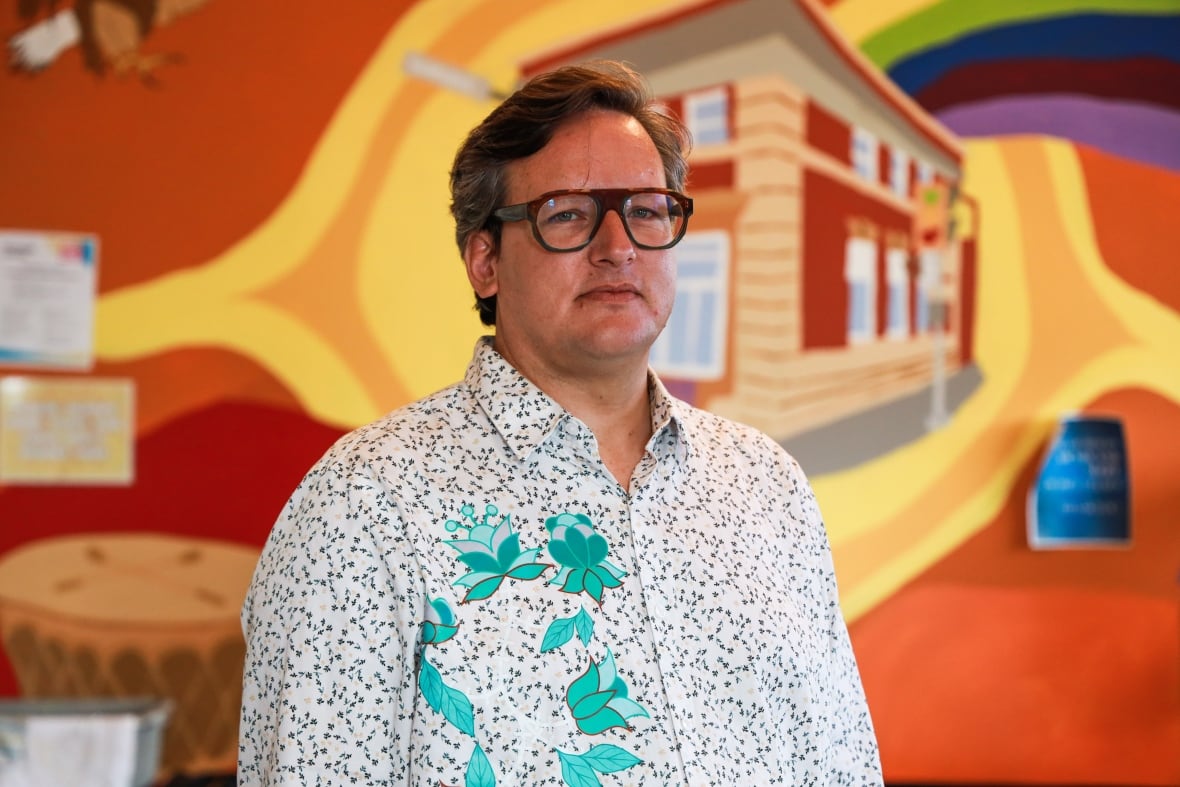PC leader's call to park overdose prevention van based on misleading information: Sunshine House
Tory leader says party simply asking for more data as it calls for rejection of mobile site in a new vehicle

A Winnipeg community resource centre says data used by the leader of Manitoba's Progressive Conservatives to argue for the parking of a mobile overdose prevention site does not paint the full picture.
PC Leader Obby Khan said in a news release Thursday the federal government should put the brakes on Sunshine House's overdose prevention van, citing a 25 per cent reduction in overdose calls and a 29 per cent reduction in the administration of naloxone after its first RV was taken out of service in early July.
Data from the Winnipeg Fire Paramedic Service does show numbers went down month-over-month, with naloxone administrations dropping from 619 in June to 466, and patient numbers sliding from 340 to 264.
But Sunshine House's executive director, Levi Foy, says the figures are misleading.
"That doesn't actually take into account the overdoses that we have responded to or that community partners have responded to or that community members have responded to," he said. "It's misinformation."

Foy said the higher naloxone distribution in June could also indicate there may have been more kits of the opioid overdose medication out in the community that month, and that people may have had less need of emergency services.
"It's really hurtful that they would come out and they would launch this type of attack against a community-based organization without actually speaking to us, without visiting our site, without having any kind of engagement or full understanding of our relationship with WFPS," he said.
A city spokesperson said in an email there's often "significant fluctuations" in the data between months, and that many factors could be behind that, including drug availability, their potency, and the season.

"Over the past several years, as the drug crisis has heightened, we've also seen a shift where more residents, outreach agencies and substance users are carrying/using naloxone, without calling 911," the email said.
'Let's take a look at those numbers': PC leader
The mobile service, which lets people use substances under the supervision of staff trained in overdose response, first hit the road in the fall of 2022. The RV that used to offer the service was totalled on July 2 after a vehicle ran into them.
The Salvation Army donated a new vehicle — a decommissioned ambulance — to Sunshine House after the hit-and-run. The PCs said in the statement they've sent a letter to the federal health minister urging he to reject an exemption allowing Sunshine House to run a mobile injection site on the ambulance.
Khan is quoted as saying the data is clear, and that when the van is "taken off the road, drug activity goes down."
On Friday, the Tory leader acknowledged the data goes up and down over time, but he told CBC News the party is just calling for pause to see whether the numbers stay lower.
"Does this trend continue in August, in September?" he said. "Is that van actually enabling people to be stuck in this drug suspension that they're in, this addiction that they're in? So let's get more data.… We're simply saying let's take a look at those numbers."
Foy said injections only represents a fraction of the services the van offers and that more than 95 per cent of services they deal with are related to inhalation and smoking, which "never stopped in that time frame."

He said that the number of overdoses Sunshine House sees actually went up that month, from 11 in June to 27 in July.
"I think all of the information around toxic drug supply that's being shared across the sector and with community members has really improved our abilities to not have to rely on WFPS as much," he said.
"I'm really sad that … they are using this as a moment to kind of attack our services."
With files from Zubina Ahmed
